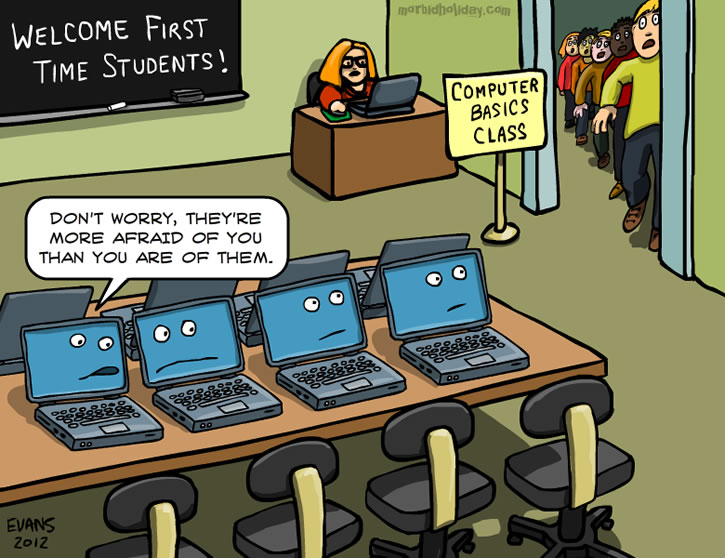 Fear or dislike of advanced technology or complex devices and especially computers:
Fear or dislike of advanced technology or complex devices and especially computers:
— technophobe noun
— technophobic adjective
In voiceover, you have to lay your hands on a computer every day. You may be watching your iPhone for auditions or marketing yourself on social media. You may be scrolling around a pay-to-play site for audition possibilities on your smart phone, tablet, desktop, or laptop. And, I’m assuming you used a computer to enroll in classes here at TVAS!
So, I’ll assume that all of us at TVAS have some level of computer skills. But I want to talk about that deer-in-the-headlights look I see when a VO student hears me say terms like, “edit,” “master,” “room tone,” “DAWS,” or “home studio.” That’s when You the Performer wonders how you could ever be You the Audio Engineer. There’s a shortness of breath, dilated eyes, sweaty palms.
The real answer is you don’t have to be an audio engineer. Not anymore than you need to be a computer programmer to run your laptop. Somewhere, sometime you learned which buttons to push in what order to make your computer turn on and run. For basic handling of your audio, you just need to learn which buttons to push in what order to get good results.
Of course, there’s more to know. There’s a whole realm of deep knowledge that can take a career to learn and master. And when you have a need for that depth of knowledge, then take the job to a professional studio or go study audio engineering.
But, for day-to-day work in your home studio and especially for long-form audio like audiobooks, elearning, and long narration, it’s a matter of staying organized, having a tried-and-true process, knowing what to obsess over and what not to, and which buttons to push when.
It’s like looking under the hood of your car. You may or may not recognize what’s under there. Of course, knowing all that can save you money or enable you to do some things on your own. But, to make the car run, you just need to know to turn the key, put it in drive, and go. Audio isn’t quite that simple, but close, thanks to (dare I say it?) … technology!
It’s like a recipe. The first time making the dish or processing your audio, you’ll be slow, as you carefully follow steps you got from somebody. As time goes on, you learn, you add and subtract and make the process your own. After a while your fingers know the way faster than you can talk about it.
It’s an old lesson: crawl, stand up and hang on, take step, fall down. Get up. Repeat. Take a few more steps. Pretty soon you’re walking. Pretty soon you’re running. Pretty soon you don’t remember not knowing.
Hahahaha I feel like I helped inspire this post given all the times I’ve mentally clocked out at your mention of editing and software.